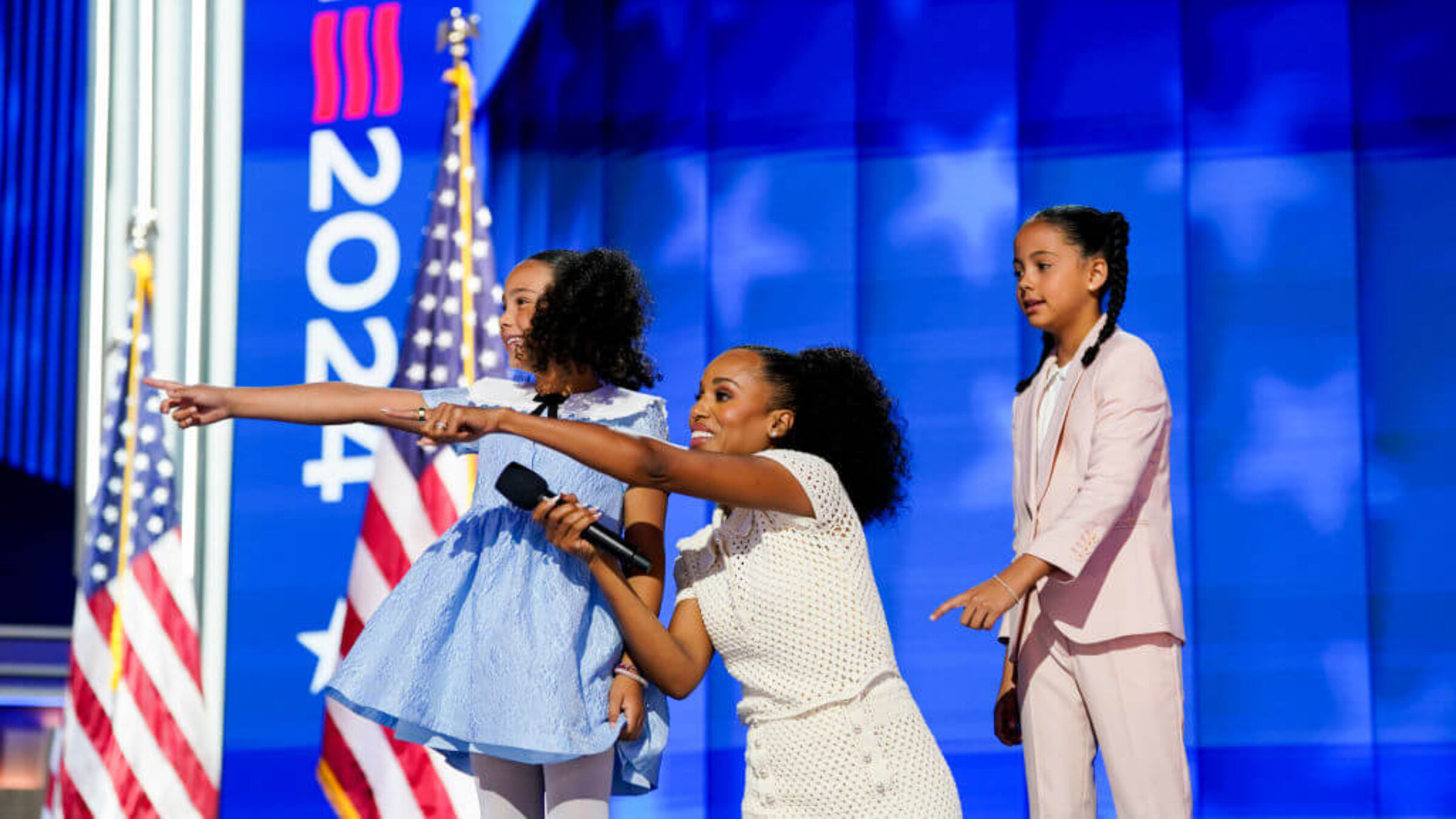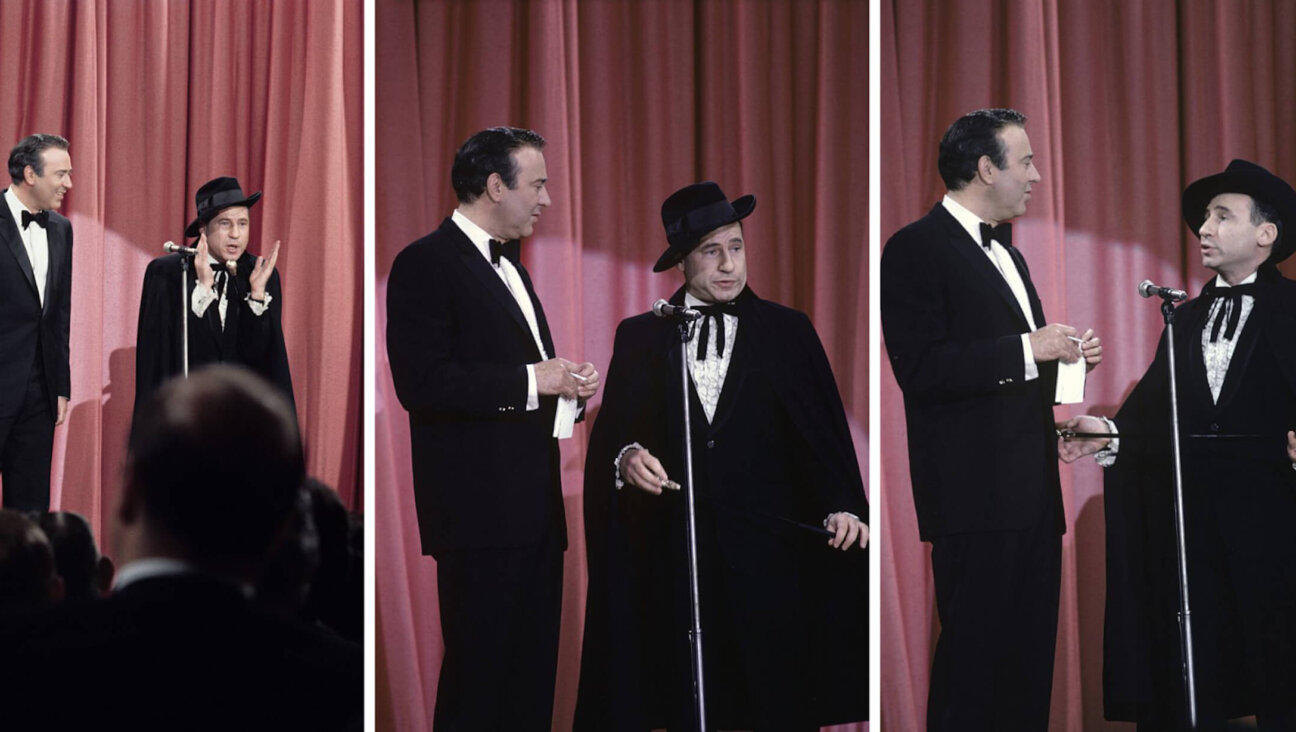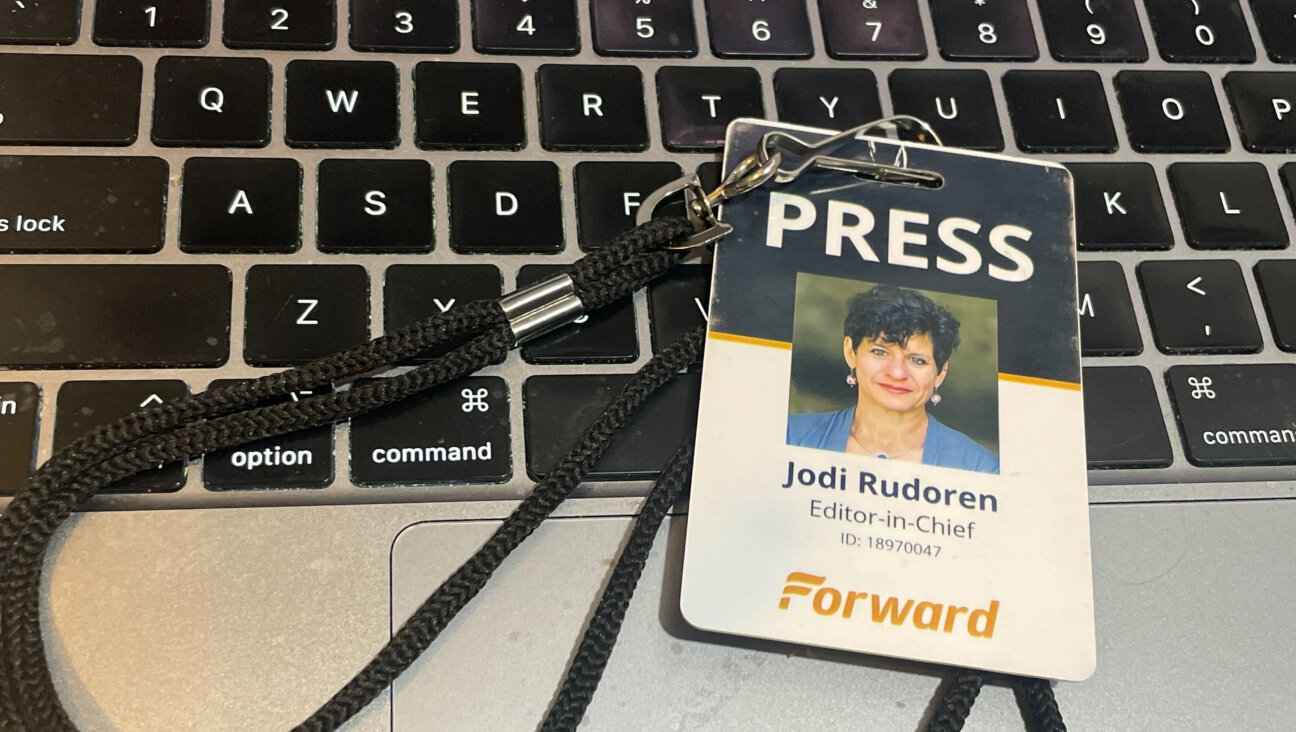How Kamala’s first-name campaign could change our understanding of leadership
This week at the DNC normalized the idea of women wielding power.

Along with actress Kerry Washington, Kamala Harris’ grand nieces taught the DNC’s audience how to properly say the vice president’s name. Photo by Al Drago/Bloomberg via Getty Images
CHICAGO — The most adorable moment of the Democratic National Convention came when Vice President Kamala Harris’s great-nieces “taught” the crowd how to say her name.
“First you say ‘comma,’ like a comma in a sentence,” explained Amara Agaju, who is 8 and wore a boss-lady pink pantsuit. “Then you say ‘lah,’ like la-la-la-la-la,” added her 6-year-old sister Leela, whose fluffy pigtails brushed the square white collar of her blue dress. The girls then led the packed United Center in a call-and-response: Comma — lah, comma — lah, comma — lah.
And when their Auntie took the stage a short time later to accept her party’s presidential nomination, the lollipop signs that filled the arena said KAMALA, not HARRIS. Her first name is her brand, and feminists should stop worrying about it.
Umpteen articles have been written about how female politicians are more likely than their male counterparts to be called by their first names (see: Hillary! 2016) and how this is supposedly a sign of disrespect. It’s a theme echoed by Jewish feminists, who have long complained that women rabbis are denigrated by being referred to by their first name rather than title.
It’s time — maybe long past time — to flip the script. Let’s embrace first names for all politicians, and clergy and other professionals, as a way to make our politics and our synagogues and our workplaces a little more human. You can be respected while also being relatable.
(Note to Donald Trump: Purposely and persistently mispronouncing someone’s name is a different story. Try watching this video of Amara and Leela and say it with them: Comma-lah, comma-lah. There’s even a button with it in Hebrew if it helps.)

Names matter — that’s why the husband and I combined ours to signal the egalitarian approach we hoped to take in our family. And Kamala’s quest to break the ultimate glass ceiling by becoming the first woman president of the United States could herald a deeper shift in what female leadership is all about.
When I was coming up, most of the focus for women in the workplace was on ensuring we had access to the executive suite. And most of the women who succeeded in jobs typically held by men did so by leading like the men who occupied the office next door.
But after the #MeToo scandals, the conversation shifted. The question of how meetings were run was suddenly as important as who was running them. And that was not just about women, but also about men of color, queer people and others who did not fit a traditional executive profile.
Maybe, as some feminists had been arguing for a long time, if women were in charge, the world would be run a little more like a family — and maybe that would be a good thing.
I remember when my kids were small, and our friends debated what their little friends should call us adults. We settled on Mr. and Ms. First Name, like, “Ms. Jodi,” since “Mrs. Rudoren” sounded too stilted — sounded, frankly, like someone else.
It was a cute idea, but it never really took. Now, the teenagers that my twins bring to hang out in our basement or do homework in our kitchen call me Jodi. They say it with respect I earned by talking to them and listening to them, not through honorifics.
I write all this as a female executive who was once told by a millennial, feminist employee — the gender editor of The New York Times — that I lead like a man (she meant it as a compliment). I never really understood what she meant. Yes, I set high expectations and say what I think, usually in a loud voice and with plenty of confidence. I also urge everyone to bring their whole selves to work, ask every job candidate about her superpowers, and compliment employees’ footwear.

What leading like a woman looks like, of course, depends on the woman leader. What was remarkable about this week’s Democratic convention was how many were on display, particularly women of color. I didn’t do a count of the 100-plus speakers from the podium, but the overall vibe was definitely pink, even before Pink’s electrifying performance of “What About Us.”
Unlike HIllary Clinton’s coronation in 2016, this week normalized the idea of women wielding power; as my friend and former colleague Maggie Haberman noted last night, the fact that Harris did not join thousands of delegates in wearing suffragette white or mention the historic significance of her candidacy was itself significant.
The strongest, most memorable voices from the podium belonged to women of color: Reps. Jasmine Crockett of Texas and Alexandria Ocasio-Cortez of New York; Michelle Obama and Oprah; and Harris herself. I mean, Kamala.
She is a new, very 21st century model of female leadership. Remember how Hillary Clinton said she would not stay home and bake cookies? Well, apparently Kamala is quite proud of her Passover brisket. She is a badass boss lady with a goofy husband who put his career on pause as hers took off, something a lot of us find more than a little relatable.
Her speech last night was tough — and also warm. She’s a prosecutor and a step-Momala, a sorority sister who rendered Brett Kavanaugh speechless when she drilled him about laws that gave government power over male bodies. Her fans are describing her as a “joyful warrior,” a phrase it’s hard to imagine being applied to a man.
So call her Kamala. Just make sure to pronounce it right.






















